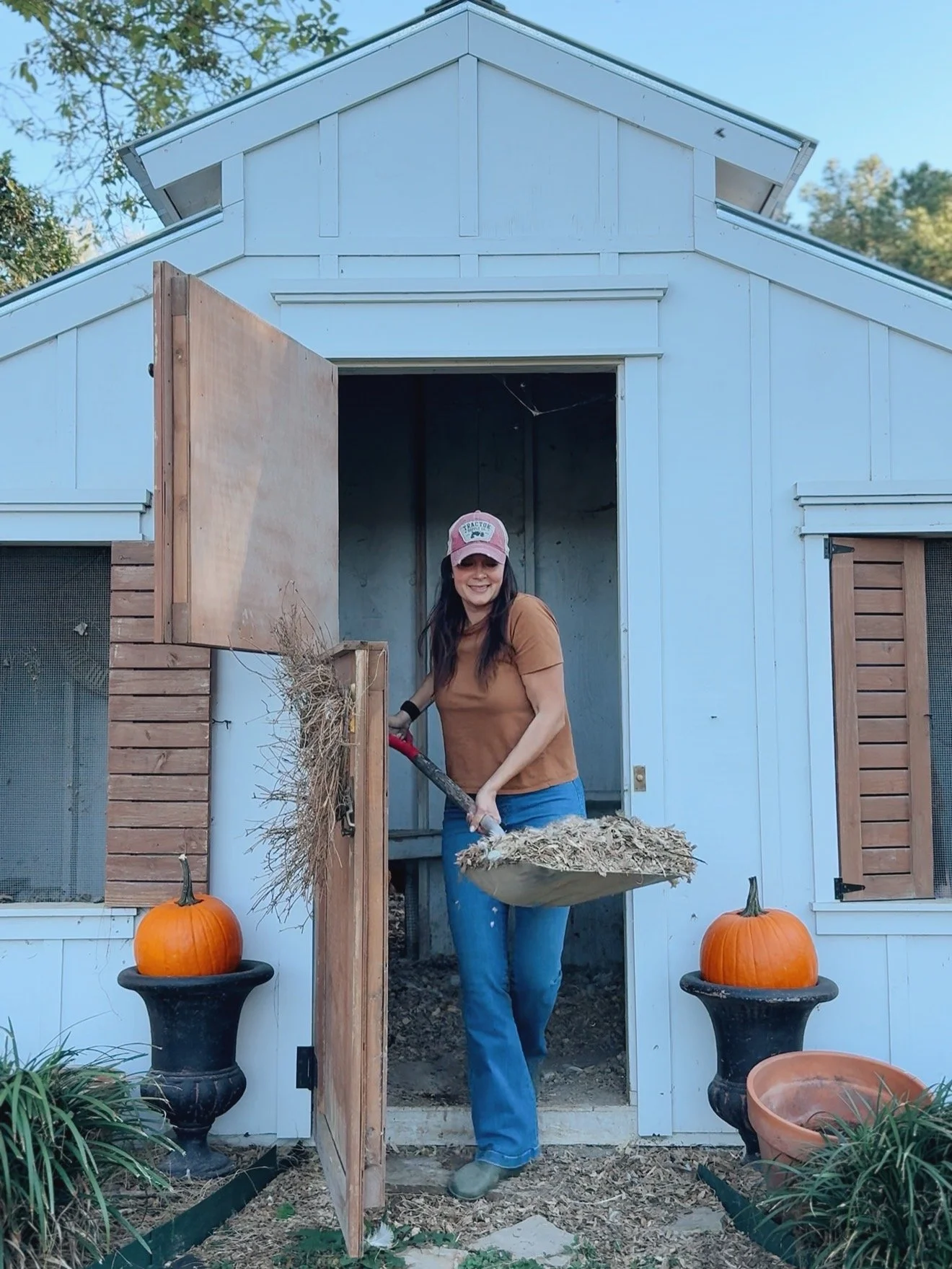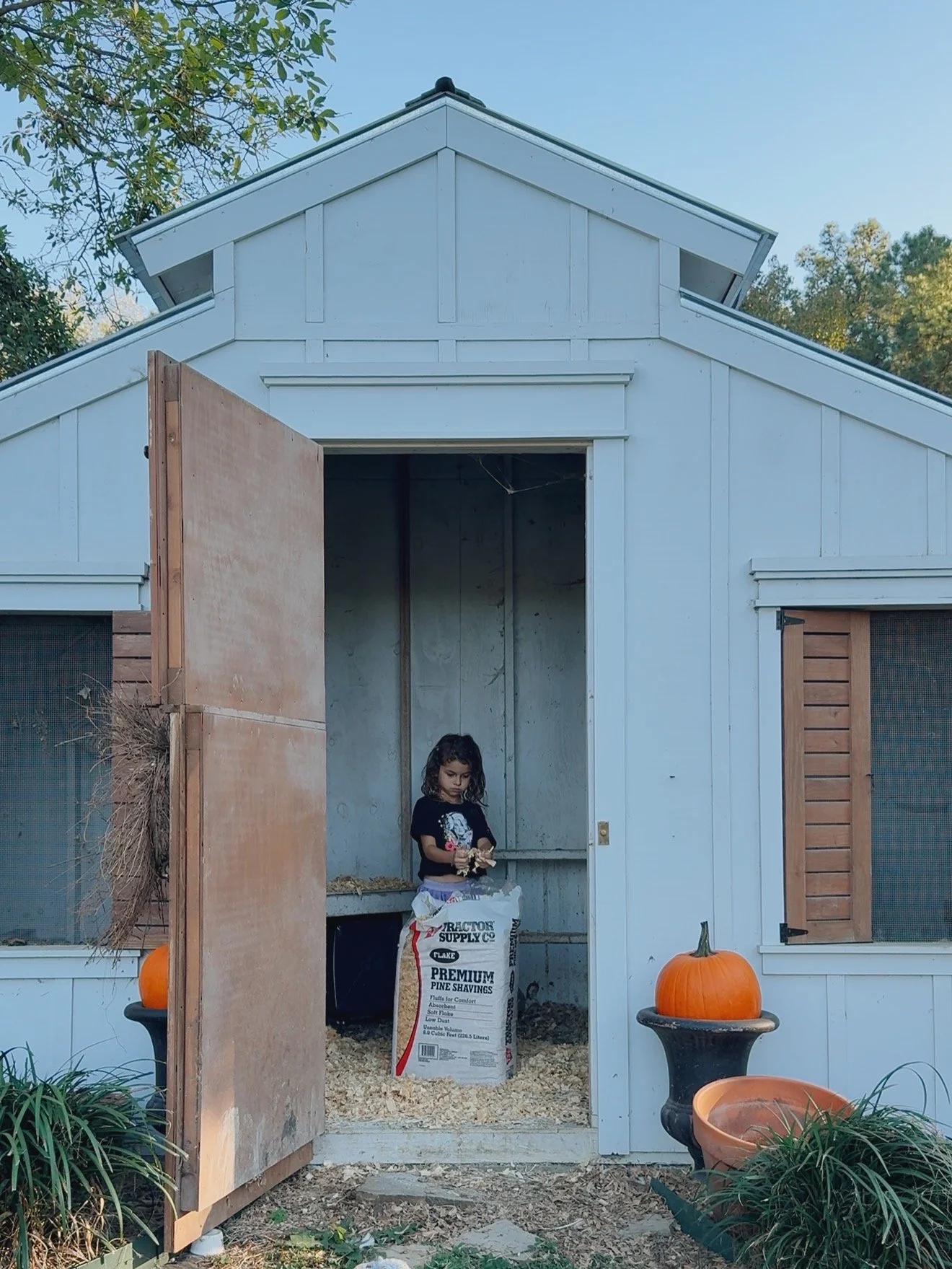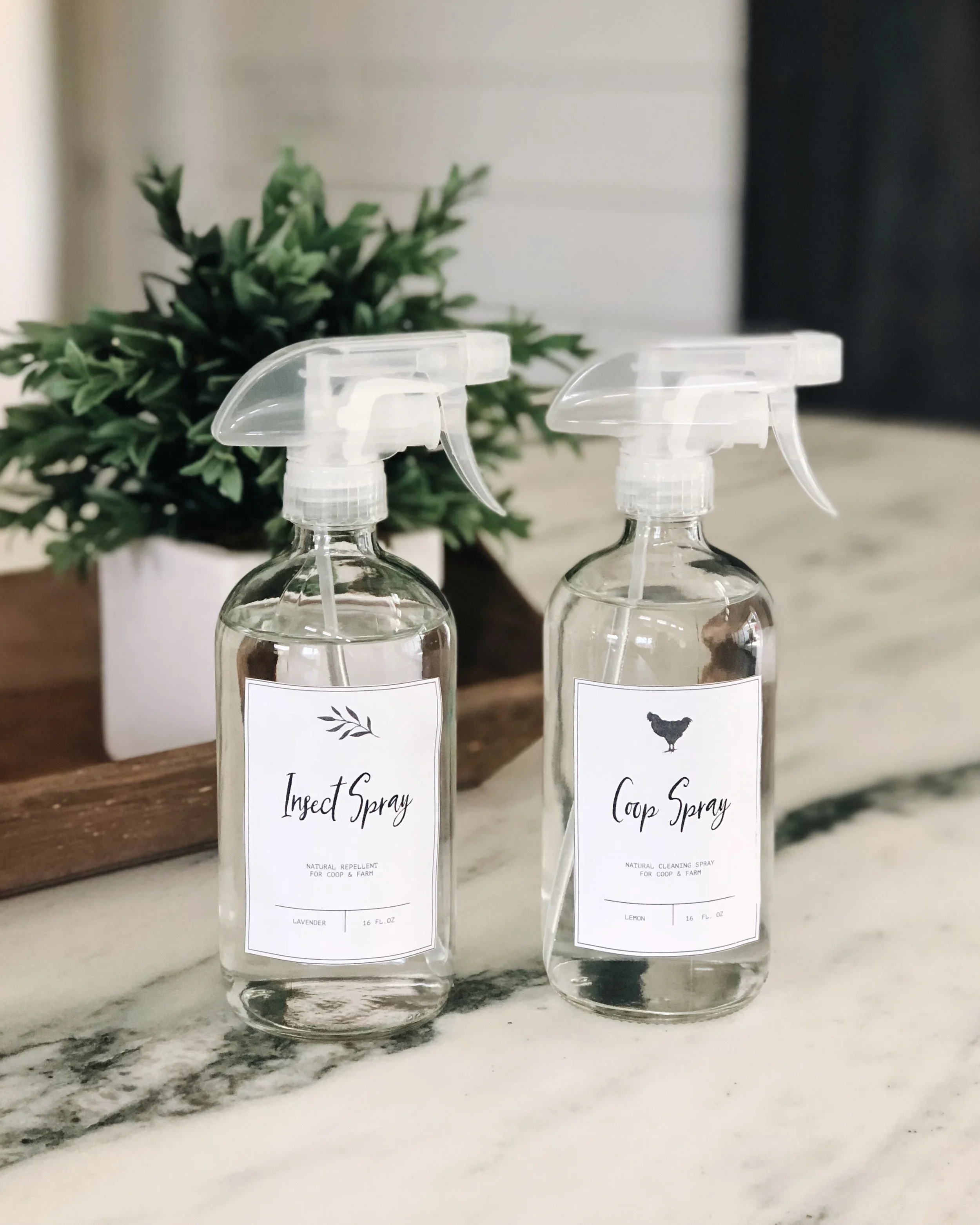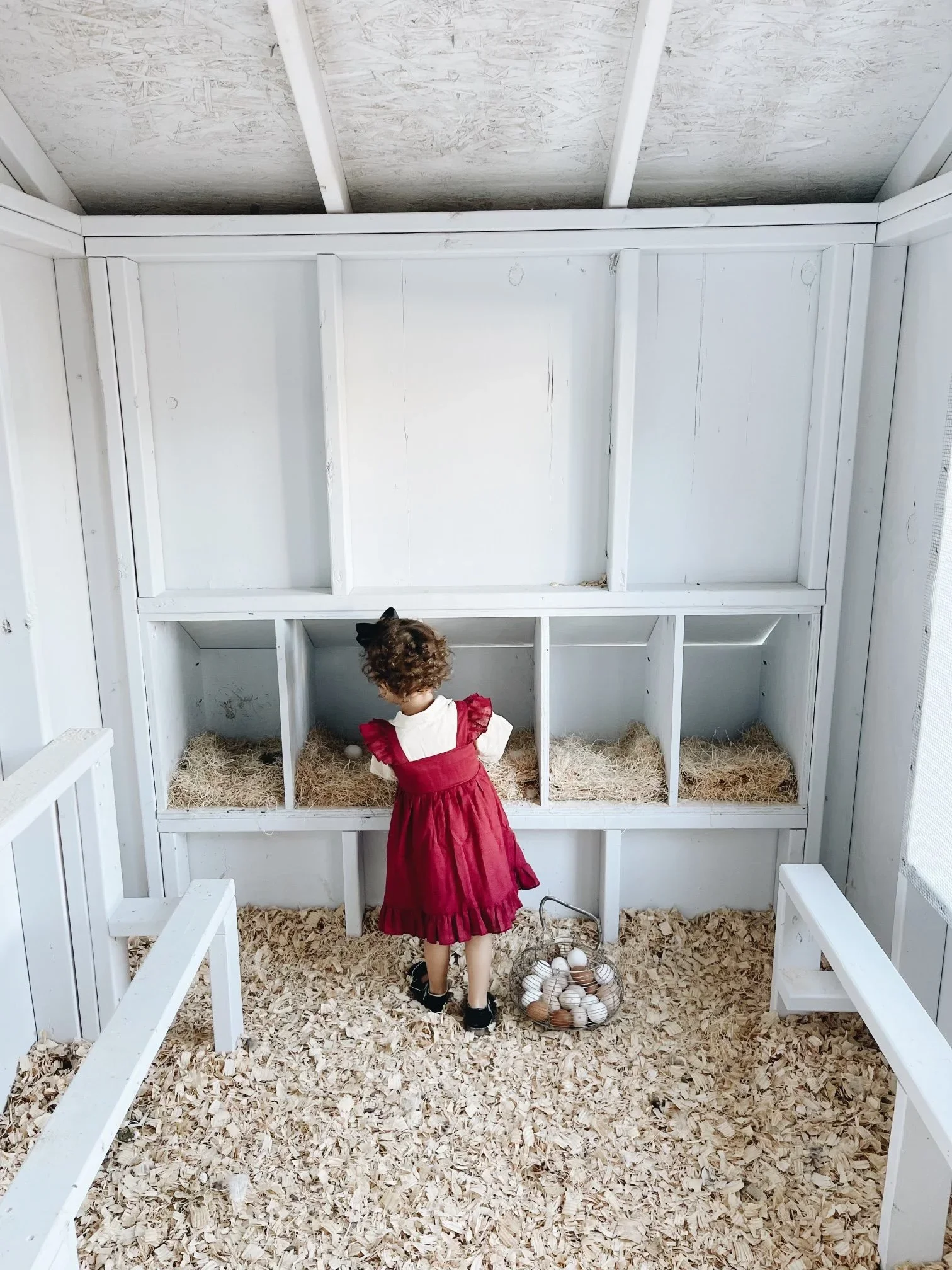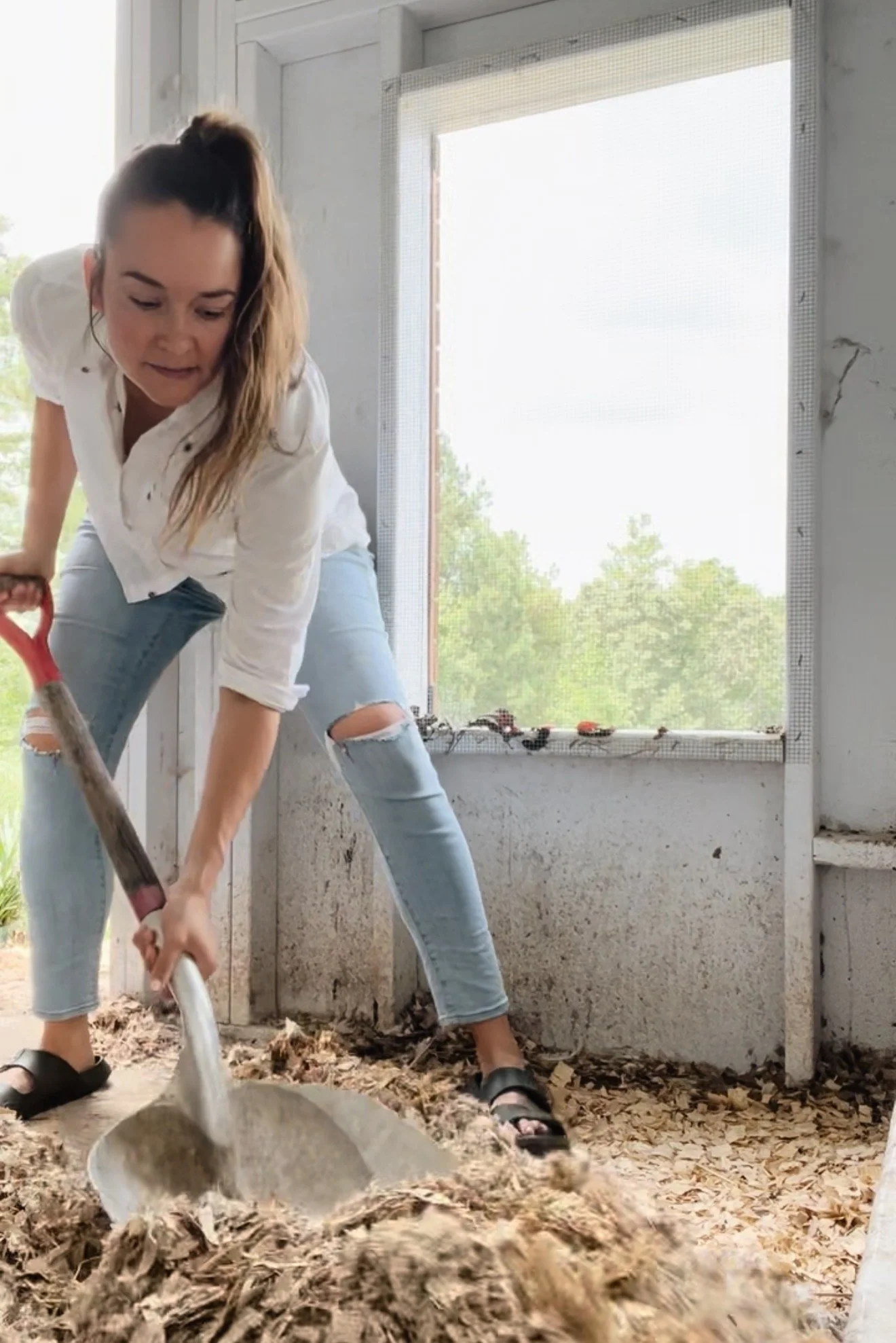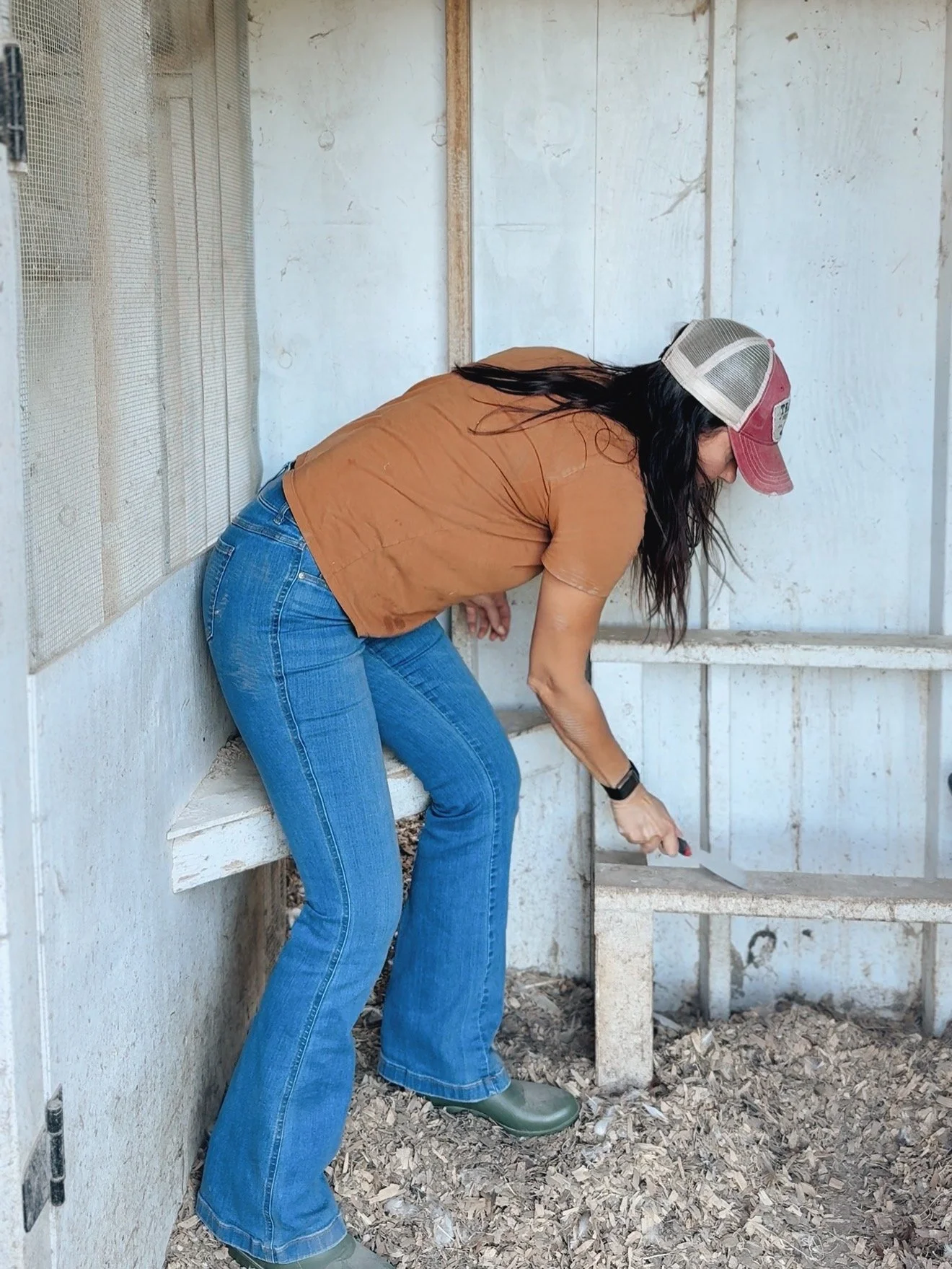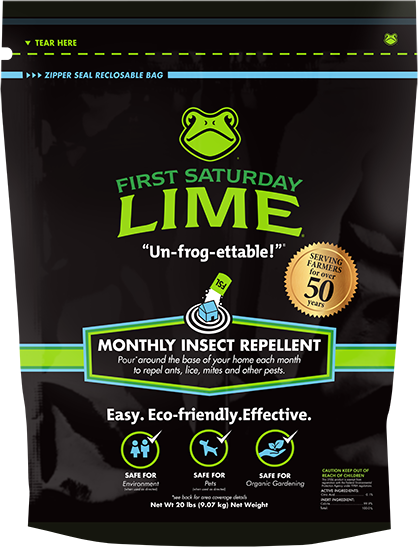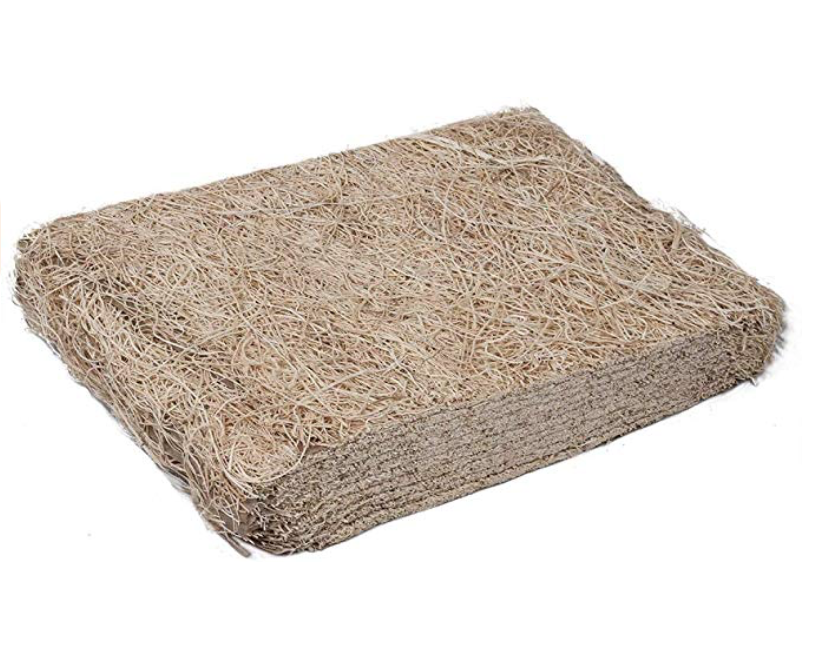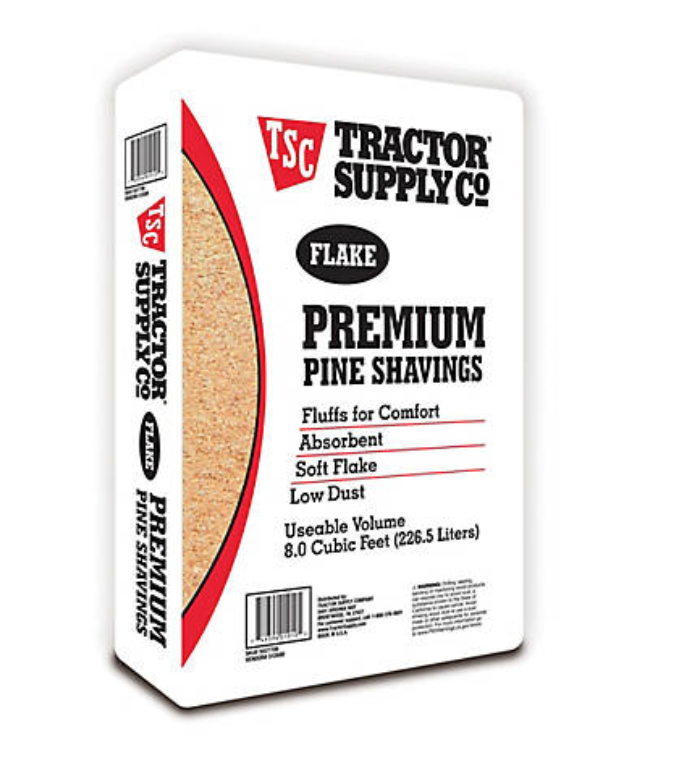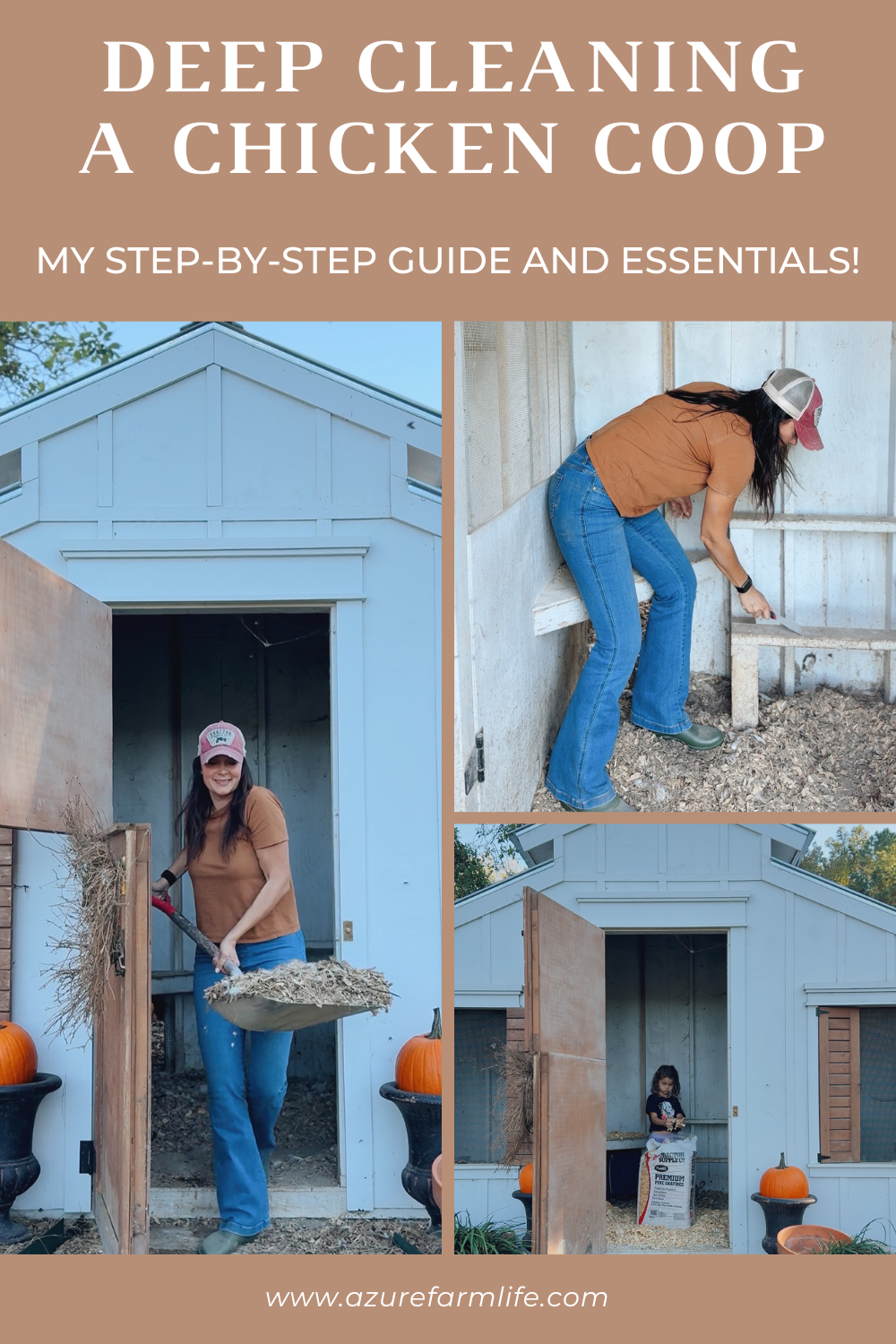HOW TO CLEAN YOUR CHICKEN COOP NATURALLY
Keeping a clean chicken coop might not be the most glamorous part of homesteading, but it’s one of the most important. A tidy, fresh coop means healthier hens, cleaner eggs, and a happier flock overall.
And as the weather cools and winter creeps closer, now’s the perfect time to give your coop a thorough clean. A deep clean before the chill sets in helps your hens stay warm, dry, and disease-free through the colder months.
In this guide, I’ll walk you through how to clean your chicken coop, including why cleaning matters, how often to do it, and exactly how to get the job done—naturally and simply.
WHY IT’S IMPORTANT TO CLEAN YOUR COOP
Chickens spend a lot of time inside their coop—roosting, nesting, and scratching around. Over time, droppings, feathers, and dust can build up and cause several problems:
Ammonia buildup: Chicken droppings release ammonia, which can irritate your flock’s eyes and respiratory systems.
Dampness and mould: Moist bedding can harbour bacteria and cause frostbite in cold months.
Pests: Dirty corners invite mites, flies, and even rodents.
Odor: A clean coop means fresh air—for your chickens and for you!
Think of coop cleaning as part of your regular flock health care. Just like we deep clean our homes before a season change, the coop deserves a good refresh too.
Why You Should Clean Before Winter
A pre-winter clean is especially important. Cold weather brings extra moisture and less ventilation, which can quickly turn a slightly dirty coop into a damp, smelly one.
Here’s why a fall deep clean helps:
Better insulation: Fresh, dry bedding keeps the coop warm and cozy.
Less moisture: Prevents mould, frostbite, and respiratory issues.
Fewer rodents: A clean, sealed coop is far less inviting to mice.
Good ventilation: Cleaning gives you a chance to check windows and vents to balance airflow and warmth.
Healthy start to winter: If chores get trickier in bad weather, your hens will already be set up in a clean space.
Take this time to look over your coop structure too—tighten latches, fix any gaps, and patch cracks before winter rains or cold winds arrive.
READ MORE: How to prepare your chicken coop for winter
WHAT YOU’LL NEED
I like to use all natural products when cleaning the coop. You don’t need harsh chemicals or fancy tools—just a few basics will do.
SUPPLIES NEEDED:
Gloves and a dust mask ( I’m bad about doing this, but it’s probably best) Oh, and boots too!
Shovel, broom, and rake
A cleaning brush or scraper
Bucket of warm water and natural cleaning solution (like vinegar + a few drops of lemon or eucalyptus essential oil)
First Saturday Lime or agricultural lime - read more about it HERE
Fresh pine shavings for bedding
Nesting box pads or clean straw
A spray bottle with my natural coop spray that helps keep dust mites to a minimum.
A small tarp or bag. ( It’s nice to have this lying on the ground outside the coop, where you can brush the old shavings onto it. Then just move it to your compost pile.
STEP-BY-STEP: HOW TO CLEAN THE CHICKEN COOP
Move your flock out.
Give the hens a little free-range time while you work.Remove all old bedding and droppings.
Shovel out every corner—especially under roosts and nesting boxes.Scrape and sweep.
Use a brush or scraper to remove stuck-on droppings, cobwebs, and dust from walls, perches, and floors.Wash or spray down surfaces.
Mix warm water with vinegar. Scrub or hose the floor, walls, and roosts. Avoid soaking the wood too much—just enough to loosen dirt. If you don’t want to do a complete wash, you can just spray down EVERYTHING with my natural coop spray, which will really help disinfect your coop.Air it out.
Open the doors and windows to let sunlight and fresh air do their work. This step is vital to keep things dry.Apply lime.
Sprinkle a light layer of agricultural lime on the floor, in corners, and in nesting boxes. Lime helps neutralize ammonia, dries out moisture, and discourages pests and bacteria.Add fresh bedding.
Spread a thick, fluffy layer of pine shavings—about 3 to 4 inches in winter for extra insulation.Refresh nesting boxes.
Add clean pads or fill with pine shavings.Inspect as you go.
Check for leaks, drafts, loose boards, or holes where predators could sneak in. Better to fix them now than in the middle of a stormy night!Return your flock.
Once the coop is dry, let your hens back in. They’ll be quick to inspect your work and approve :-)
HOW OFTEN SHOULD YOU CLEAN THE COOP?
You don’t need to deep clean every week. This can really depend on how many chickens you have and how messy it gets. I would say weekly, spruce it up, and once a month, really clean it. If you smell ammonia, then it needs to be cleaned.
Here’s a simple rhythm to follow:
Daily/Weekly: Scoop droppings from roosts and check for damp spots.
Monthly: Remove soiled bedding, spray down surfaces, and add fresh shavings.
Seasonally: Do a deep clean (like this one) in spring and fall—especially before winter.
Some farmers use the deep litter method—adding fresh bedding over old, allowing it to compost slowly and create gentle warmth in winter. If you use this approach, stir the bedding weekly, monitor ammonia smell, and do a full clean-out a few times a year.
OTHER WAYS TO KEEP YOUR COOP FRESH
Check humidity: A small hygrometer can help you keep the coop between 50–60% humidity in winter.
Balance ventilation and warmth: Fresh air is crucial, but avoid drafts directly on the roosts.
Keep feed sealed: Store grains and feed in metal bins to prevent rodents.
Repurpose old bedding: Add used, composted bedding to your garden once it’s broken down—it’s full of nutrients for your soil.
Whitewash for a bright finish: A natural lime wash can disinfect and brighten wooden walls.
Spray essential oils in the coop: Bugs hate the smell of lavender, peppermint, rosemary, basil, and lemongrass. Put some in a spray bottle with water and spray away.
Add herbs like basil and lavender to the nesting boxes: Your chickens will love it, and it will help deter bugs.
Want to know how to grow these herbs yourself? I have a whole blog section dedicated to growing herbs! Have a look here!
FREE CHECKLISTS
shop chicken coop cleaning essentials
If you purchase through the links below it really helps support Azure Farm. Thank you! Click on images to view. You can get all supplies at TRACTOR SUPPLY! To order online or order any product through Tractor Supply click HERE
clean coop = healthy flock!
A clean coop is the heart of a healthy flock. Taking an hour or two to freshen things up—especially before winter—pays off in fewer pests, cleaner eggs, and happier chickens. Oh, and better smells ;-)
The sound of content clucking as your girls settle into their fresh bedding is all the reward you’ll need!
And friend, if you are looking to build a coop or upgrade your existing one, have a look at this blog for a few ideas and tips: What should be inside a chicken coop?
Love, Annette xx

